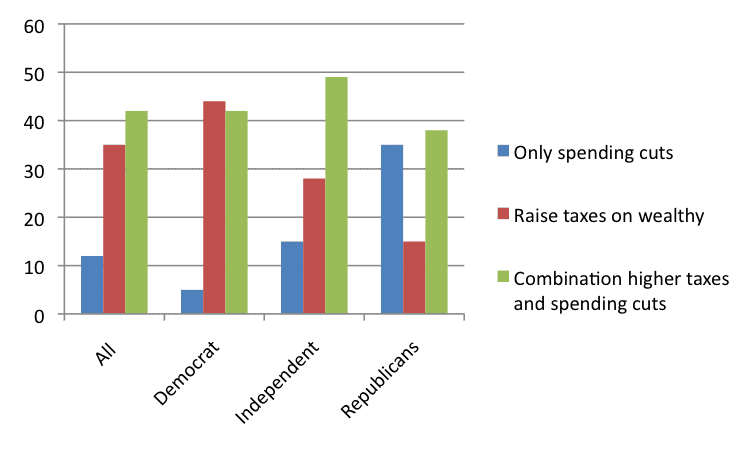The 2012 presidential election debate centered on how best to jumpstart our economy and spur job creation. The candidates campaigned on their opposing plans, drawing stark contrasts on fundamental economic issues such as taxes, health care, and the national debt. Hispanic voters went to the polls in record numbers and with a clear message: Grow the economy in a way that we all prosper. In fact, more than half of Hispanic voters said the economy weighed heaviest on their mind as they cast their vote for president.
So we’re pleased to see the president kick off the debate on the so-called fiscal cliff by standing by his campaign pledge to reduce the deficit in a balanced way, including asking the wealthy to pay a little more so we can invest in the next generation. In an election eve poll Hispanic voters expressed their overwhelming support for this approach. When asked how we should go about reducing the deficit, 35 percent support raising taxes on the wealthy and 42 percent support a combination of revenue generation and spending cuts—and not on the backs of the poor. Notably, support remains high for revenue plus cuts across party lines.
Latinos have a lot at stake in how Congress opts to fix our budget woes. Our community stands to be among the most affected by cuts to safety net programs and investments that would grow the economy, such as education and job training. By 2020, three out of four workers joining the labor force will be Hispanic. Our economy—and our retirees—will benefit from a productive, educated workforce. Moreover, our community is younger than others, which means it will be Latino children stuck with debt from overspending today.
As they return to work next Tuesday, Congress would do well to listen to Hispanic voters and raise revenue and reject cuts that would put millions back in poverty.






Comments